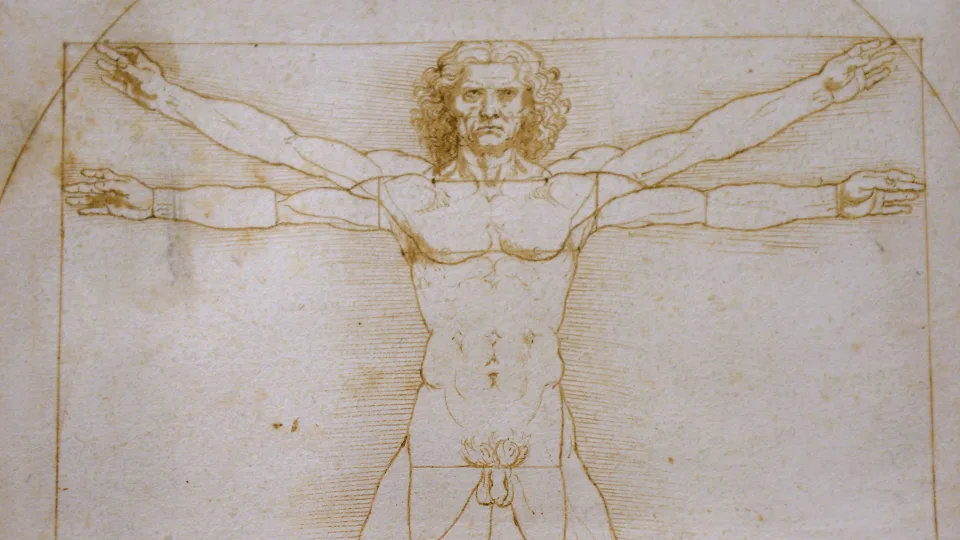By Maria Koulourioti,
After a stressful period of exams, many students find themselves at a crossroads of the supposedly most prestigious choices that will determine the path of their lives. Being called to make a decision that makes you feel “life-bound” is inherently a trait that opposes the multidimensionality of human nature, the perception of “Homo Universalis”. Investigative and critical spirit, curiosity, and above all, a tendency to engage with every object of art and science. A man (or woman) who embodies all the ideals of the Renaissance, the term refers to the breadth or desired “universality” of erudition one could acquire.
It would be ideal if we all strived to be Homo Universalis, or what is now referred to as a “Jack of all trades,” instead of forcing ourselves onto a spiritual highway that leads to a spiritual dead end. Many would consider that people who strive to make history with their trade and compete with the greatest usually focus 100% on their art, sport, or science. This is not entirely accurate, as the man for whom the term was created, Leonardo Da Vinci, was far from one-dimensional, being an active painter, draughtsman, engineer, scientist, theorist, sculptor, and architect. Many historians and academics view Leonardo as the premier example of the “Universal Genius” or “Renaissance Man,” a person of “unquenchable curiosity” and “feverishly inventive imagination,” despite the fact that he received no formal academic training. He is regarded as having the widest range of talents of anyone who has ever lived. And the most significant is none other than the fact that Da Vinci never received any kind of formal education. Undoubtedly, the statement does not either prove the necessity or the insignificance of formal and higher education, but rather the endless possibilities that are enhanced once we let go of the societal pressure of perfection and full dedication to one field. While it can transcend passion and the indomitable fighting spirit, it can also become very draining, leading to depression, burnout, and even suicide. Robin Williams, Vincent Van Gogh, Sylvia Plath, and Virginia Wolf were pioneers in many ways in their arts, leaving a great legacy behind. However, mental health issues that are found in high-intelligence personalities are undeniably connected to an inner innuendo of forced perfection, a “give-in” to societal pressure, and maybe even a thought of a long-lost, simpler dream and life goal.

There is no given proof that indicates whether we should occupy ourselves with various things at once or not, though a high level of inspiration is often transmitted, maybe transformed into a new kind of love, for activities and knowledge we couldn’t even imagine. To be even more specific, many of us already are “Jacks of many trades”. Even though we consider ourselves experts in a certain field, not many people could conquer the title of “Homo Universalis” since Da Vinci, when his only successor that the majority agreed to be Michelangelo. An overlooked genius, Hedy Lamarr was best remembered as the natural beauty, Austrian-American actress, and not as much as the brilliant inventor and “mother of WiFi”. It was Lamarr who pioneered the technology that would one day form the basis for today’s WiFi, GPS, and Bluetooth communication systems. As everyone was swayed by her in Samson and Delilah and White Cargo, it is important we draw inspiration from her passion and ability to adapt in different fields, not minimizing her potential and letting stereotypes of the era stigmatize her talent. “Improving things always was natural for me”, she stated, whether it was a crying scene on set or a modification to the manuscripts at the lab.
In the end, we may be anything but experts, but that’s not what embodying Homo Universalis values should teach us. Rather than that, we can walk all different kinds of paths at once, at different speeds, and on different roads. Passion is what makes a human entity a person, in an era when the status quo promotes labor as a cheap ideal rather than an art.
References
- Hedy Lamarr. womenshistory.org. Available here
- Homo Universalis, jankoatwarpspeed.com. Available here
-
We’re Not Nouns, We’re Verbs. mattwilliamscreative.medium.com. Available here




